[India] [East India Company] - Robert Clive, 1st Baron Clive, KB MP FRS (25 September 1725 - 22 November 1774) - A Letter in Clive's Hand from (Claremont) Esher Dated 17th June 1772 'Sir - I had yesterday a visit from Mrs Forde who assures me that she is in very distressed circumstances as she is the widow of Colonel Forde, to who's services the Company are so much indebted, and who lost his life in their service.........., 21cm x 18cm, mounted framed and glazed In 1769, Robert Clive acquired the house and gardens at Claremont near Esher and commissioned Lancelot "Capability" Brown to remodel the garden and rebuild the house. In 1772 Parliament opened an inquiry into the Company's practices in India. Clive's political opponents turned these hearings into attacks on Clive and questioned about some of the large sums of money he had received while in India, Clive pointed out that they were not contrary to accepted company practice, and defended his behaviour by stating "I stand astonished at my own moderation" given opportunities for greater gain. The hearings highlighted the need for reform of the Company, and a vote to censure Clive for his actions failed. Later in 1772, Clive was invested in the Order of the Bath (eight years after the knighthood had been awarded), and was appointed Lord Lieutenant of Shropshire. Clive continued to be involved in ongoing Parliamentary discussions on company reforms, during which General John Burgoyne, one of Clive's most vocal enemies, pressed the case in 1773 that some of Clive's gains were made at the expense of the Company and the government. Clive again made a spirited defence of his actions, and closed his testimony by stating "Take my fortune, but save my honour." The vote that followed completely exonerated Clive, who was commended for the "great and meritorious service" he rendered to the country. Immediately thereafter Parliament began debating the Regulating Act of 1773, which significantly reformed the East India Company's practices. On 22 November 1774 Clive committed suicide, aged forty-nine, at his Berkeley Square home in London. There was no inquest on his death and it was variously alleged he had stabbed himself or cut his throat with a penknife or taken an overdose of opium, while a few newspapers reported his death as due to an apoplectic fit or stroke. One twentieth century biographer, John Watney, concluded: "He did not die from a self-inflicted wound...He died of a heart attack brought on by an overdose of drugs". Though Clive's suicide has been linked to his history of depression and to opium addiction, the likely immediate impetus was excruciating pain resulting from illness (he was known to suffer from gallstones) which he had been attempting to abate with opium. He had recently been offered command of British forces in North America which he had turned down. He was buried in St Margaret's Parish Church at Moreton Say, near his birthplace in Shropshire.
[India] [East India Company] - Robert Clive, 1st Baron Clive, KB MP FRS (25 September 1725 - 22 November 1774) - A Letter in Clive's Hand from (Claremont) Esher Dated 17th June 1772 'Sir - I had yesterday a visit from Mrs Forde who assures me that she is in very distressed circumstances as she is the widow of Colonel Forde, to who's services the Company are so much indebted, and who lost his life in their service.........., 21cm x 18cm, mounted framed and glazed In 1769, Robert Clive acquired the house and gardens at Claremont near Esher and commissioned Lancelot "Capability" Brown to remodel the garden and rebuild the house. In 1772 Parliament opened an inquiry into the Company's practices in India. Clive's political opponents turned these hearings into attacks on Clive and questioned about some of the large sums of money he had received while in India, Clive pointed out that they were not contrary to accepted company practice, and defended his behaviour by stating "I stand astonished at my own moderation" given opportunities for greater gain. The hearings highlighted the need for reform of the Company, and a vote to censure Clive for his actions failed. Later in 1772, Clive was invested in the Order of the Bath (eight years after the knighthood had been awarded), and was appointed Lord Lieutenant of Shropshire. Clive continued to be involved in ongoing Parliamentary discussions on company reforms, during which General John Burgoyne, one of Clive's most vocal enemies, pressed the case in 1773 that some of Clive's gains were made at the expense of the Company and the government. Clive again made a spirited defence of his actions, and closed his testimony by stating "Take my fortune, but save my honour." The vote that followed completely exonerated Clive, who was commended for the "great and meritorious service" he rendered to the country. Immediately thereafter Parliament began debating the Regulating Act of 1773, which significantly reformed the East India Company's practices. On 22 November 1774 Clive committed suicide, aged forty-nine, at his Berkeley Square home in London. There was no inquest on his death and it was variously alleged he had stabbed himself or cut his throat with a penknife or taken an overdose of opium, while a few newspapers reported his death as due to an apoplectic fit or stroke. One twentieth century biographer, John Watney, concluded: "He did not die from a self-inflicted wound...He died of a heart attack brought on by an overdose of drugs". Though Clive's suicide has been linked to his history of depression and to opium addiction, the likely immediate impetus was excruciating pain resulting from illness (he was known to suffer from gallstones) which he had been attempting to abate with opium. He had recently been offered command of British forces in North America which he had turned down. He was buried in St Margaret's Parish Church at Moreton Say, near his birthplace in Shropshire.
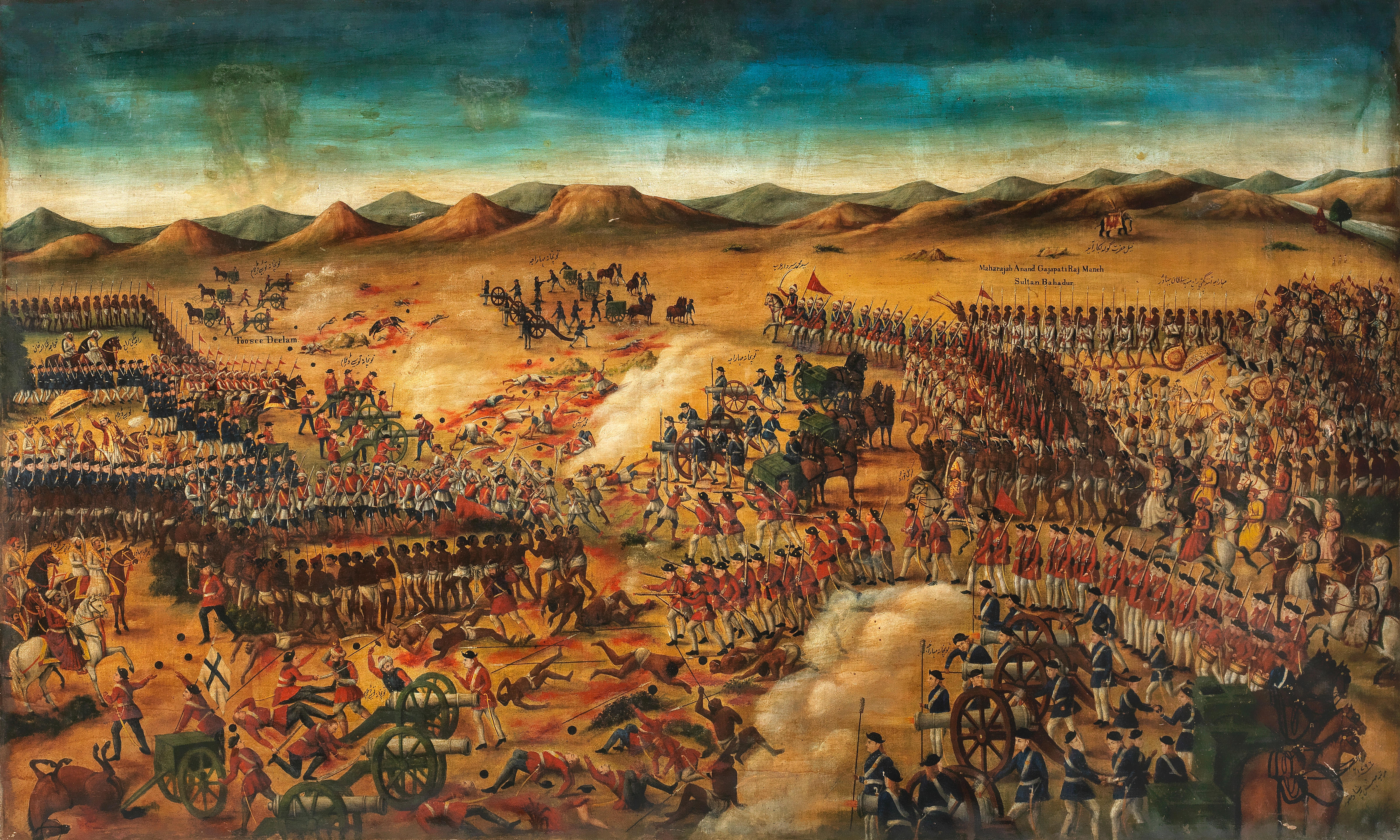
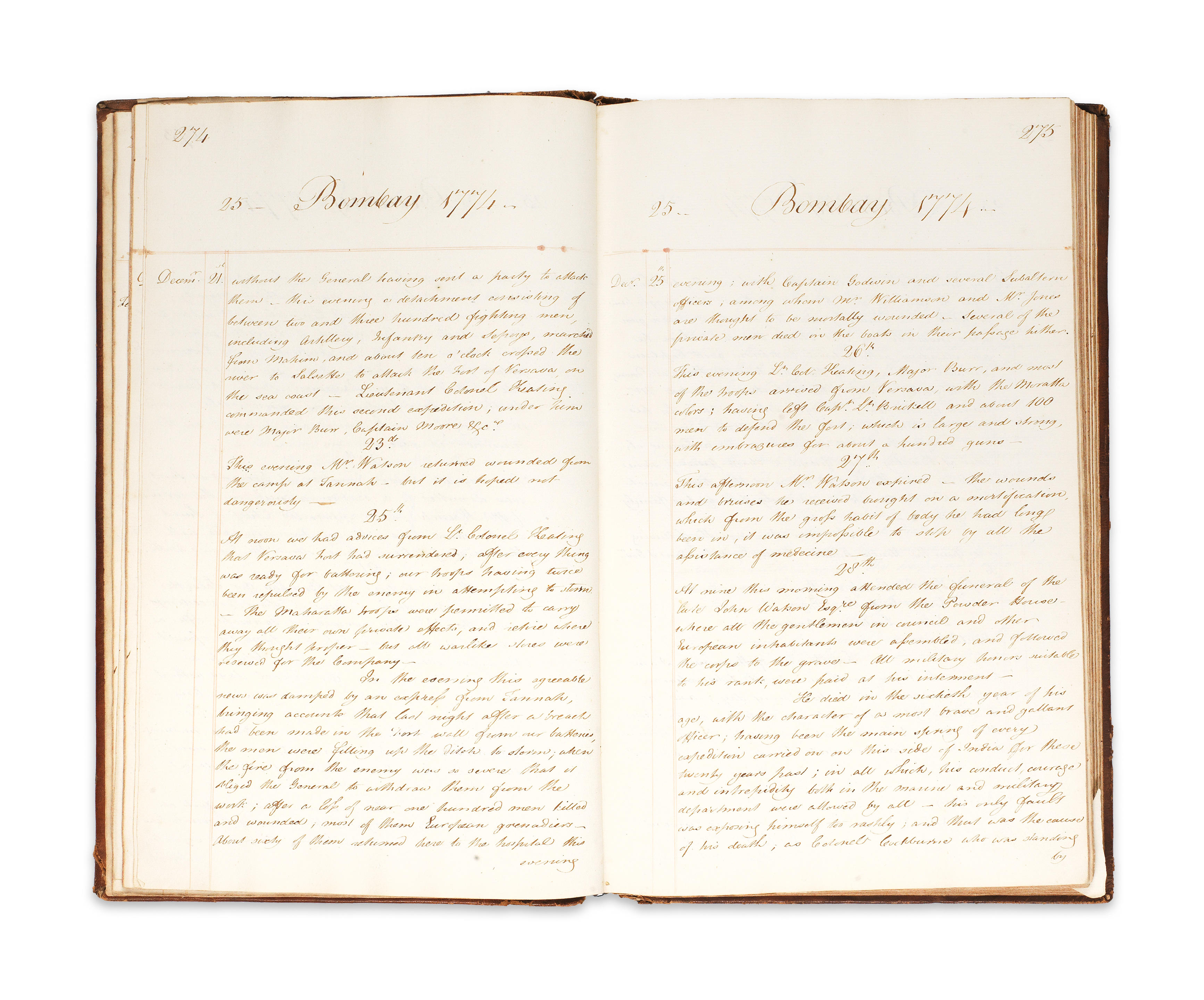
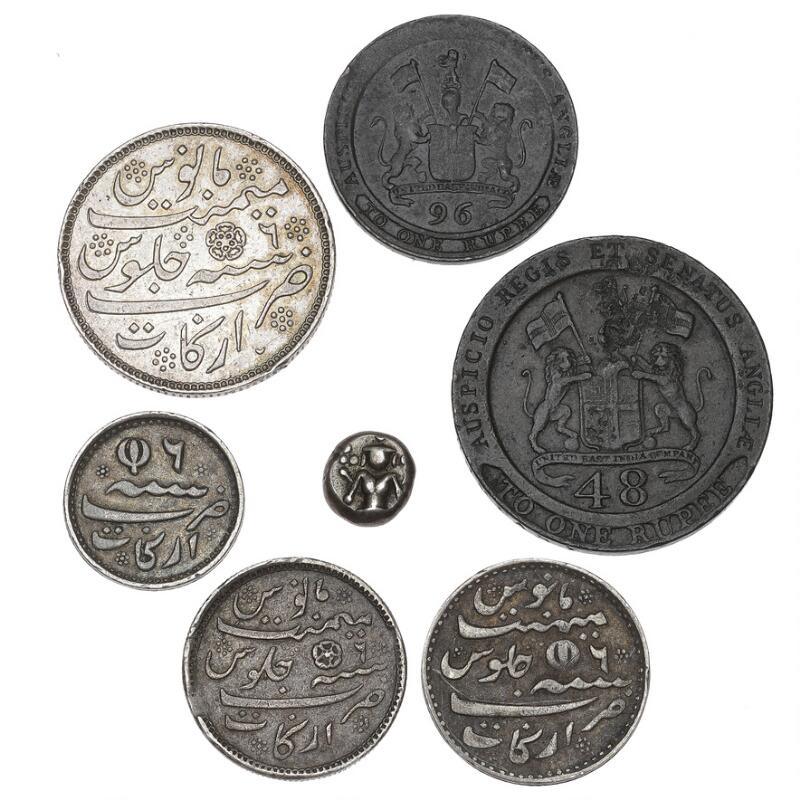









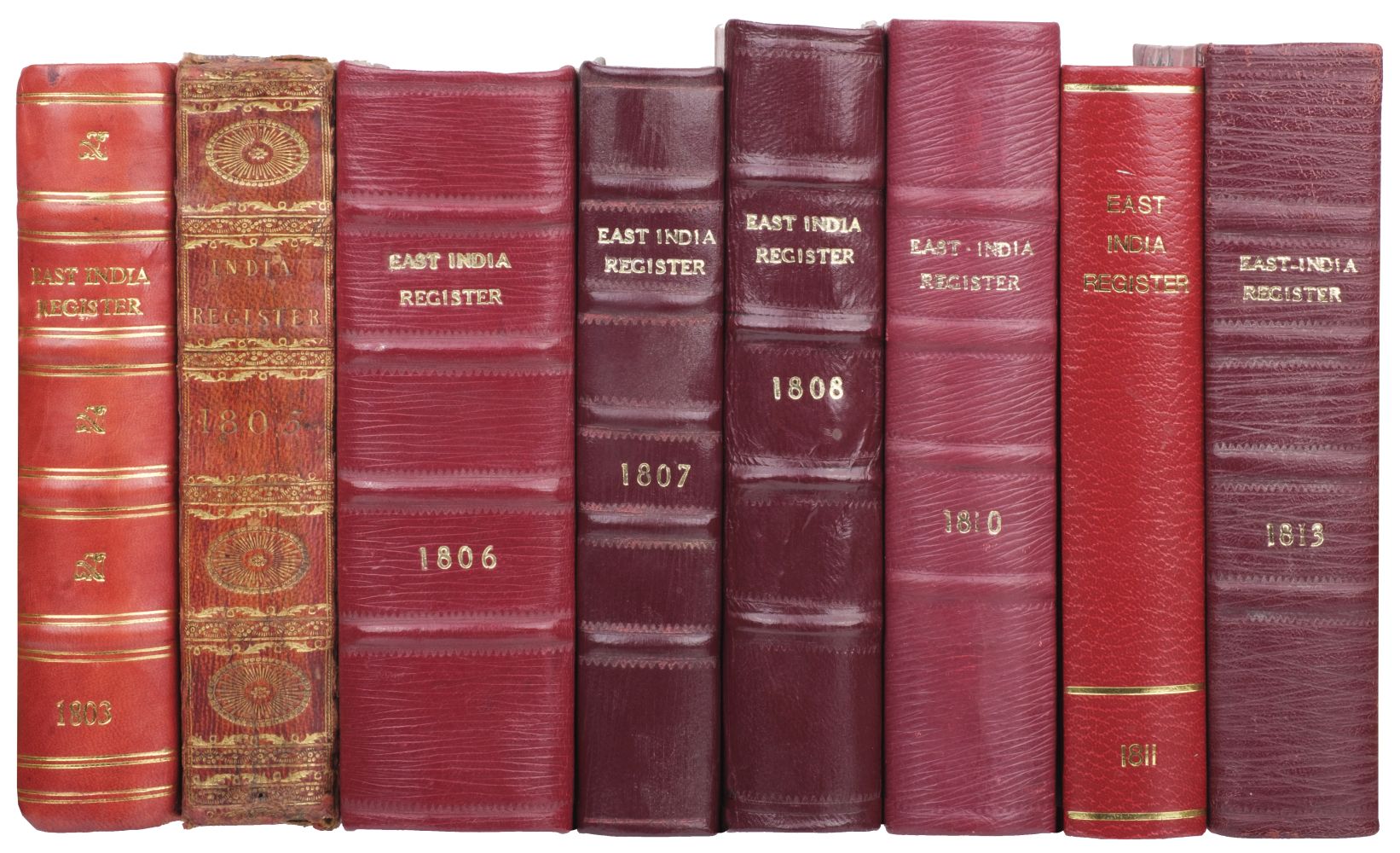
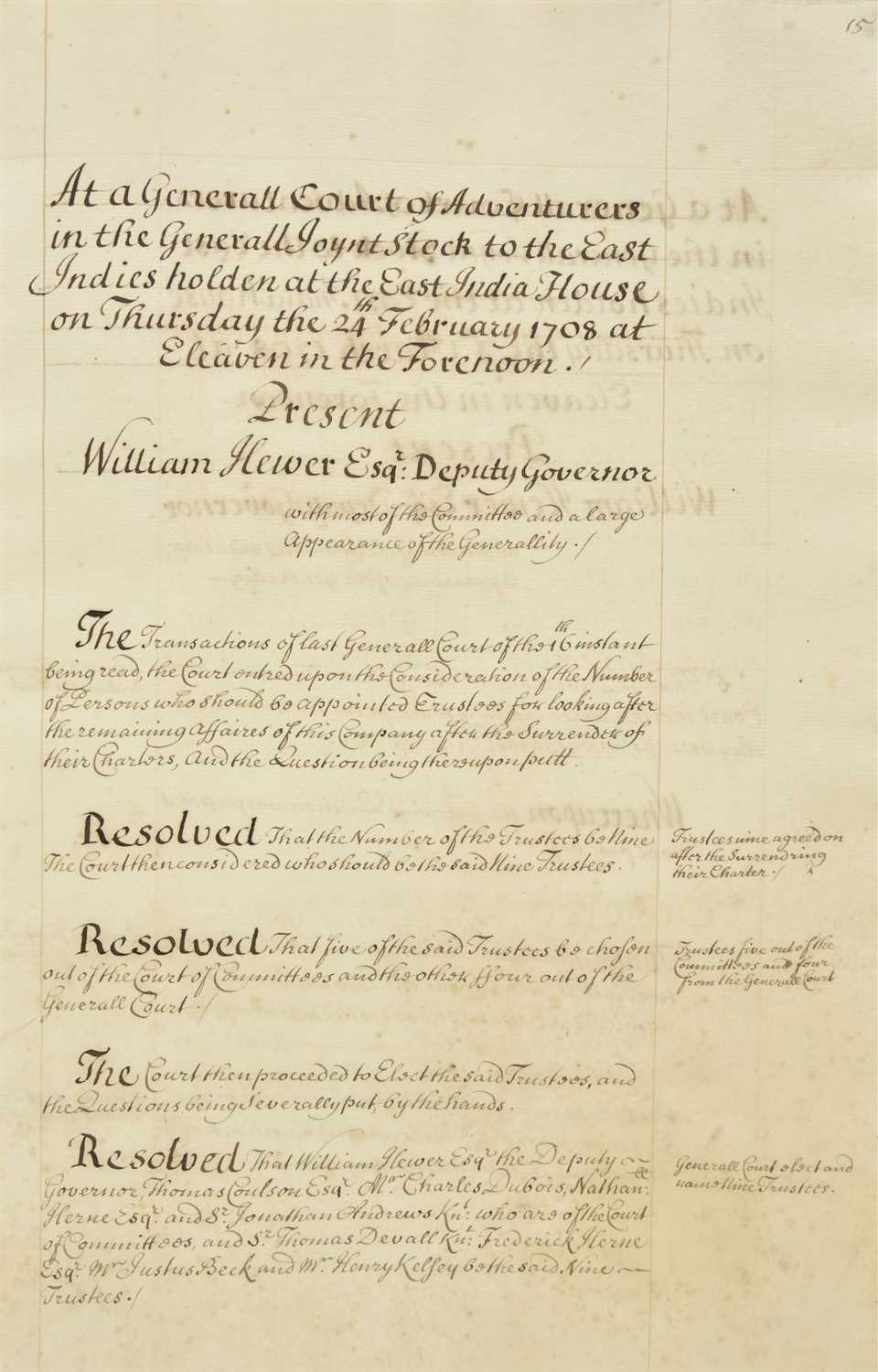
Testen Sie LotSearch und seine Premium-Features 7 Tage - ohne Kosten!
Lassen Sie sich automatisch über neue Objekte in kommenden Auktionen benachrichtigen.
Suchauftrag anlegen